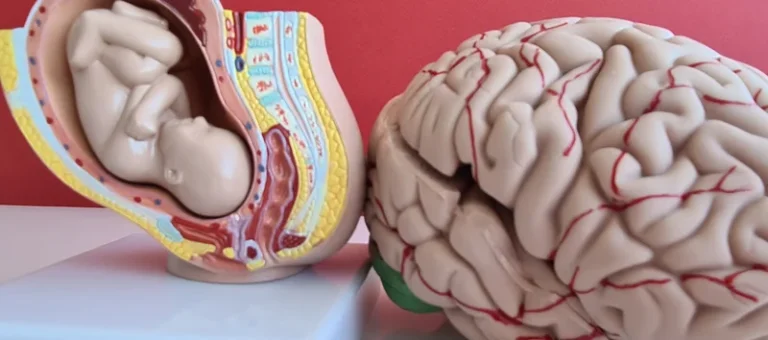
Alcoholic cardiomyopathy can present with signs and symptoms of congestive heart failure. Patients may present with dilated cardiomyopathy with systolic dysfunction. Symptoms include gradual onset worsening shortness of breath, orthopnea/paroxysmal nocturnal dyspnea. Palpitations and syncopal episodes can occur due to tachyarrhythmias seen in alcoholic cardiomyopathy. Chronic alcohol consumption can also lead to high blood pressure and disruption of normal heart rhythms, which both put strain on the heart and can contribute to the development of cardiomyopathy, Dr. Segal says. As heavy drinking continues, all of these factors can combine to worsen damage to the heart muscle.
Publication types
- Additionally, some studies have suggested that overexpression of UCP2 may lead to mitochondrial dysfunction and exacerbate the development of diabetic cardiomyopathy.
- In mild cases, there might be breathlessness only on exertion – for example, people might feel more short of breath when running or walking up a hill, or find that they are limited by shortness of breath more than usual.
- Cardiomyopathy impacts all genders and people of all ages, including children.
He adds that treatment may involve addressing other alcohol-related health issues, such as liver disease. Alcohol abuse has a toxic effect on many of your organs, including the heart. The toxicity of alcohol damages and weakens the heart muscle over time. When it can’t pump out enough blood, the heart starts to expand to hold the extra blood. Eventually, the heart muscle and blood vessels may stop functioning properly due to the damage and strain. Call your doctor right away if you think you have alcoholic cardiomyopathy.
- Alcohol-induced cardiomyopathy is a condition where your heart changes shape because of long-term heavy alcohol use.
- Some plant secondary metabolites have been found to alleviate the pathological changes of diabetes cardiomyopathy, including flavonoids, polyphenols, terpenes, alkaloids and glycosides.
- For some people, a combination of factors could also lead to a weakened heart.
- Acetaldehyde is a potent oxidant and, as such, increases oxidative stress, leading to the formation of oxygen radicals, with subsequent endothelial and tissue dysfunction.
- In IMM, NADH and FADH2 serve as electron donors, releasing electrons at complexes I and II, respectively.
How soon after treatment will I feel better?
Excessive intake of alcohol may result in increased systemic blood pressure in a dose-response relationship, and this may contribute to chronic myocardial dysfunction. Patients who consume more than two drinks per day have a 1.5- to 2-fold increase in hypertension compared with persons who do not drink alcohol, and this effect is most prominent when the daily intake of alcohol exceeds five drinks. Because hypertension may directly contribute to left ventricular (LV) dysfunction, this may be a confounding comorbidity in persons who abuse alcohol, and it should be differentiated from pure forms of alcoholic cardiomyopathy. Clinical overview, pathogenesis, treatment and prognosis of alcoholic cardiomyopathy.
Treatment of arrhythmias
Addressing the symptoms as quickly as possible may help keep alcoholic cardiomyopathy from progressing further into congestive heart failure, or some other serious health issue. Abnormal heart sounds, murmurs, ECG abnormalities, https://ecosoberhouse.com/article/the-importance-of-gratitude-in-recovery/ and enlarged heart on chest x-ray may lead to the diagnosis. Alcoholic cardiomyopathy (ACM) is a disease in which the long-term consumption of alcohol leads to heart failure.[1] ACM is a type of dilated cardiomyopathy.
- Flavonoids are secondary metabolites of plants, characterized by compounds with a 2-phenylchromen-4-one structure, widely present in plants.
- These patients may also benefit from a dietary consult to assess nutrition.
- Not all treatments or services described are covered benefits for Kaiser Permanente members or offered as services by Kaiser Permanente.
- The goal of treatment is to help your heart work as efficiently as possible and to prevent further damage and loss of function.
Clinical manifestations and diagnosis of alcohol-induced cardiomyopathy
A cardiomyopathy diagnosis typically occurs after you report symptoms to your healthcare provider. Your symptoms and family history help define the types of tests you need. The present review aims to describe the clinical features of alcoholic cardiomyopathy, particularly emphasizing on the areas of uncertainty of this under-recognized disease (Table 1). Alcoholic cardiomyopathy is the results of an excessive alcohol consumption.
- It is worth noting that when Sirt3 is knocked out, the cardioprotective effect of acacetin is eliminated (Han et al., 2020).
- Alcoholic cardiomyopathy (ACM) is a disease in which the long-term consumption of alcohol leads to heart failure.[1] ACM is a type of dilated cardiomyopathy.
- Primary cardiomyopathy involves causes that only affect the heart muscle.
- This eventually limits the heart’s ability to pump oxygen-rich blood around the body.
The risk of developing alcoholic cardiomyopathy appears to be related to both the amount and duration alcohol intake. In general, alcoholic patients consuming greater than 90 g of alcohol a day (approximately seven to eight standard drinks per day) for more than 5 years are at risk for the development of asymptomatic alcoholic cardiomyopathy. Persistent DCM develops in only a small percentage of chronic drinkers, and the role of genetic predisposition, or the presence of synergistic cardiovascular factors such hypertension or arrhythmias in the development of alcohol-related cardiomyopathy, are not clear at the present time. A study in a rat model using an alcohol dehydrogenase transgene that results in elevated levels of acetaldehyde demonstrated a change in calcium metabolism at the intracellular level and a decrease in peak shortening and shortening velocity. This was interpreted by the authors as suggesting that acetaldehyde plays a key role in the cardiac dysfunction seen after alcohol intake.
How is this condition treated, and can it be cured?

Normally, sarcomere genes work to encode proteins that are responsible for helping the heart muscle contract and relax properly. If you have cardiomyopathy, your heart can’t efficiently pump blood to the rest of your body. As a result, you may experience fatigue, shortness of breath or heart palpitations.

For example, targeting mitochondrial ROS clearance is a positive potential therapeutic strategy in DCM. The mitochondrial targeted drugs Mn (III) tetrakis (4-benzoic acid) porphyrin (MnTBAP) and mitoquinone (MitoQ) have been alcoholic cardiomyopathy is especially dangerous because shown to have the ability to alleviate oxidative stress in preclinical studies. MnTBAP intervention can reverse myocardial oxidative stress and improve mitochondrial bioenergy in a mouse model of metabolic syndrome.
Alcoholic Cardiomyopathy Recovery Potential
This usually involves certain types of medications that treat heart rhythm problems or other symptoms of heart failure. Those who don’t fully recover are also likely to need this kind of treatment indefinitely. In some cases, a pacemaker or other implantable device might be necessary to treat more severe heart rhythm problems. Without the ability to maintain proper blood flow, the function of all major organ systems in the body is interrupted. The toxic effects of alcohol abuse can be heart failure, organ failure, or a multitude of other health issues, some more dangerous than others.

Leave a Comment